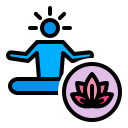Breathe, Unwind, and Feel: Progressive Muscle Relaxation Meditation
Today’s chosen theme: Progressive Muscle Relaxation Meditation. Welcome to a calm corner of your day, where gentle tension-and-release helps your mind settle, your breath deepen, and your body remember what ease feels like. Stay, explore, and share how PMR changes your evening.
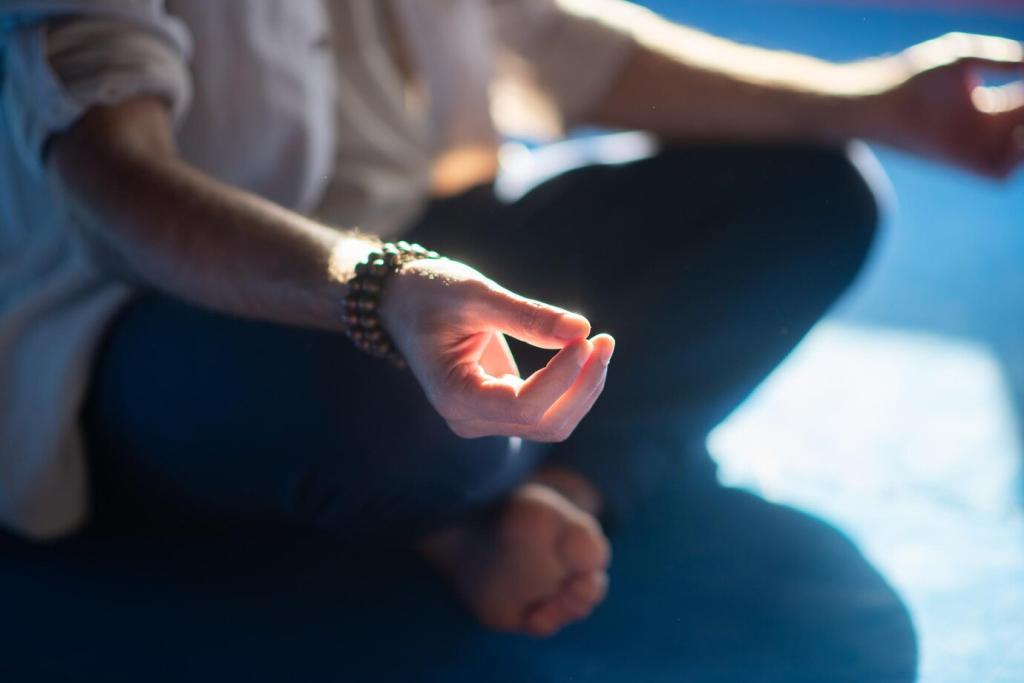
Foundations of Progressive Muscle Relaxation
Progressive Muscle Relaxation Meditation invites you to intentionally tense and then release specific muscle groups, moving through the body in a slow, deliberate sequence. This mindful contrast teaches your nervous system how relaxation actually feels.
A Gentle, Step-by-Step PMR Routine
Dim lights, silence your phone, and choose a comfortable position—lying down or seated with support. Close your eyes, inhale slowly through the nose, exhale longer than you inhale, and mentally commit to being unhurried.
A Gentle, Step-by-Step PMR Routine
Begin with feet: inhale, gently tense for five seconds, then exhale and fully release for ten. Move to calves, thighs, glutes, belly, hands, forearms, biceps, shoulders, neck, and face. Keep effort mild, awareness vivid, and breathing steady.
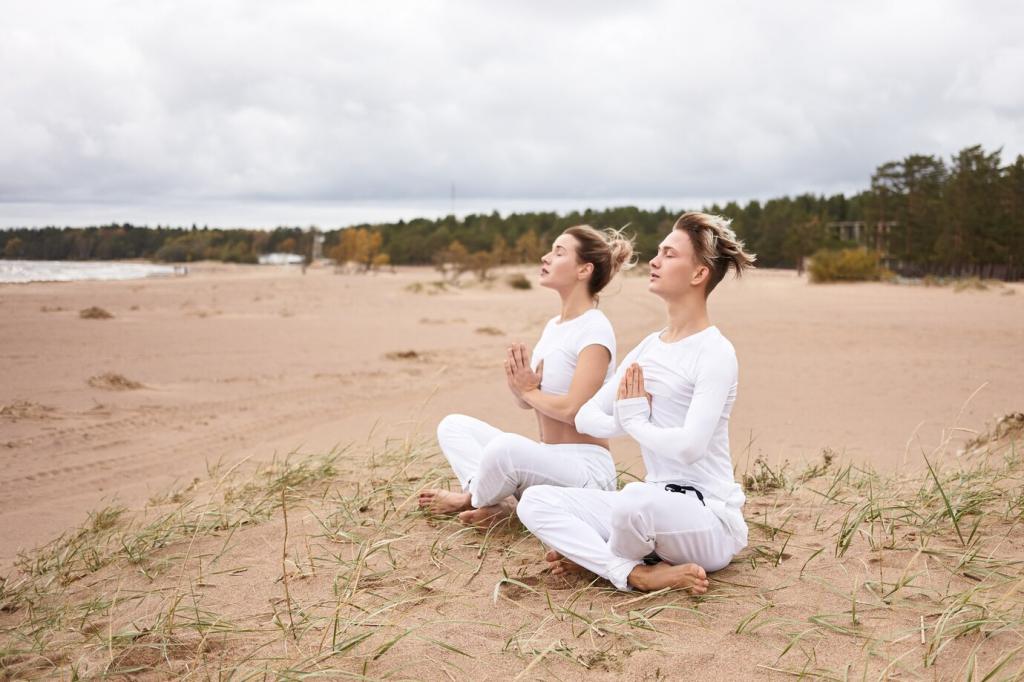
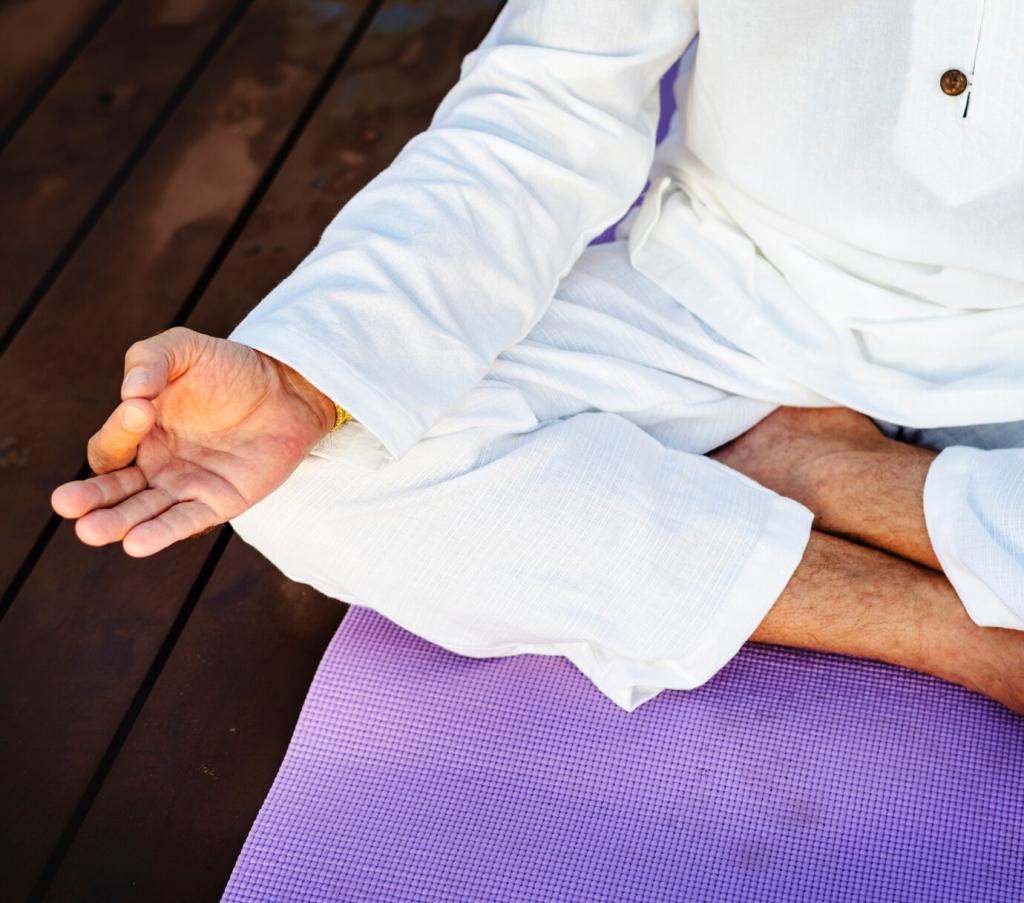

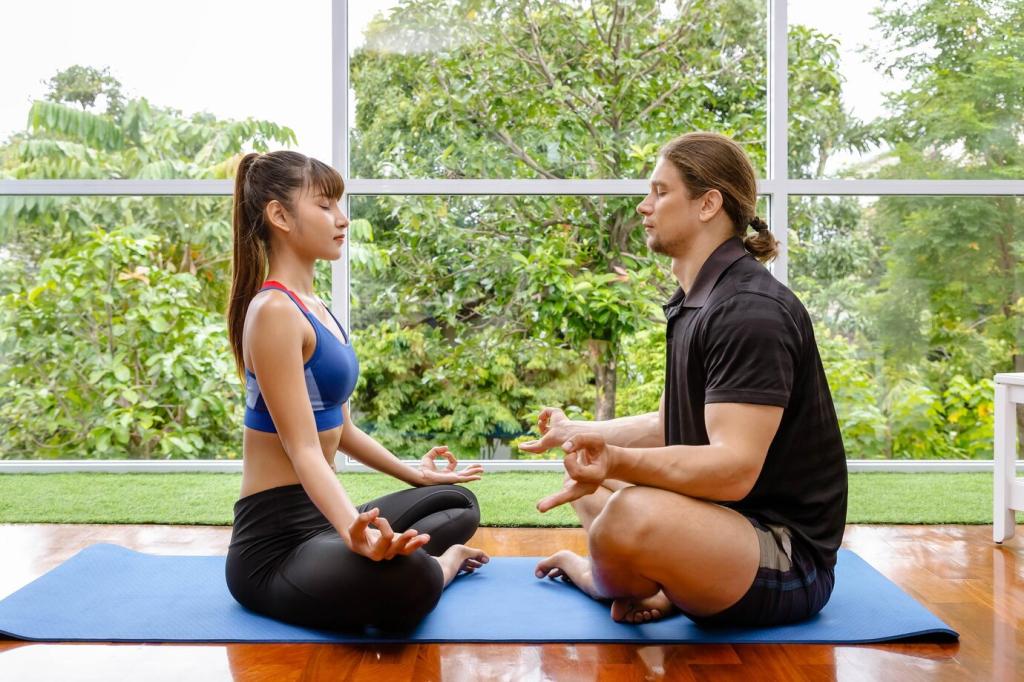
PMR for Stress, Sleep, and Focus
Pair Progressive Muscle Relaxation with dim light and a warm beverage. The gentle body scan reduces restlessness, making it easier to transition from alertness to drowsiness. Tell us which muscle group, when released, helps your eyelids finally flutter closed.
PMR for Stress, Sleep, and Focus
When emails pile up, try a two-minute sequence: hands, forearms, shoulders, and jaw. Tense lightly, release longer, and breathe out slowly. Notice how clarity returns and your next decision feels less tangled and more deliberate.
The Science and Safety of PMR
Nervous System Foundations
Tension-and-release techniques may encourage parasympathetic activation, shifting the body from fight-or-flight toward rest-and-digest. Slower exhalations complement this shift, helping muscles loosen and attention gently decouple from spiraling thoughts.
What Studies Suggest
Research has associated Progressive Muscle Relaxation with reductions in perceived stress and improvements in sleep quality for various populations. While experiences vary, many report feeling calmer within weeks of steady practice, especially when sessions are consistent.
Practice Safely and Mindfully
If you have injuries, chronic pain, or medical conditions, keep tension minimal or skip sensitive areas. Seek professional guidance when unsure. Comfort always outranks intensity in Progressive Muscle Relaxation; pain is a cue to pause, adjust, or stop.
Mindful Stories: Real Moments with PMR
After weeks of midnight scrolling, Sarah tried Progressive Muscle Relaxation for ten minutes in darkness. When her jaw softened, her breathing slowed. She woke surprised, remembering dreams instead of headlines, and messaged us: “It finally felt quiet.”
Make Progressive Muscle Relaxation a Habit
Habit Stacking for Reliability
Attach PMR to an existing cue: after brushing teeth, before lunch, or right after shutting your laptop. A fixed trigger reduces decision fatigue and makes practice happen even on days when motivation wobbles.
Track, Reflect, and Celebrate
Keep a simple log: duration, areas released, and one feeling word. Watch patterns emerge—tight Mondays, looser Thursdays. Celebrate streaks with something meaningful, and tell the community what small reward keeps you returning to the mat.
Overcoming Common Hurdles
If restlessness spikes, shorten sessions, slow exhalations, and skip over tender spots. If boredom appears, change the order or add soothing music. Share your hurdles below; someone else has likely solved the same snag.
Share Your First Session Notes
What surprised you—jaw tension, clenched toes, or how quickly your shoulders softened? Post a reflection, and mention one muscle group that responded best. Your insights may become someone’s turning point tonight.
Ask, Answer, and Grow
Curious about pacing, sequence order, or pairing PMR with breathwork? Drop questions and offer tips from your experience. Respectful dialogue keeps this practice welcoming, practical, and human.
